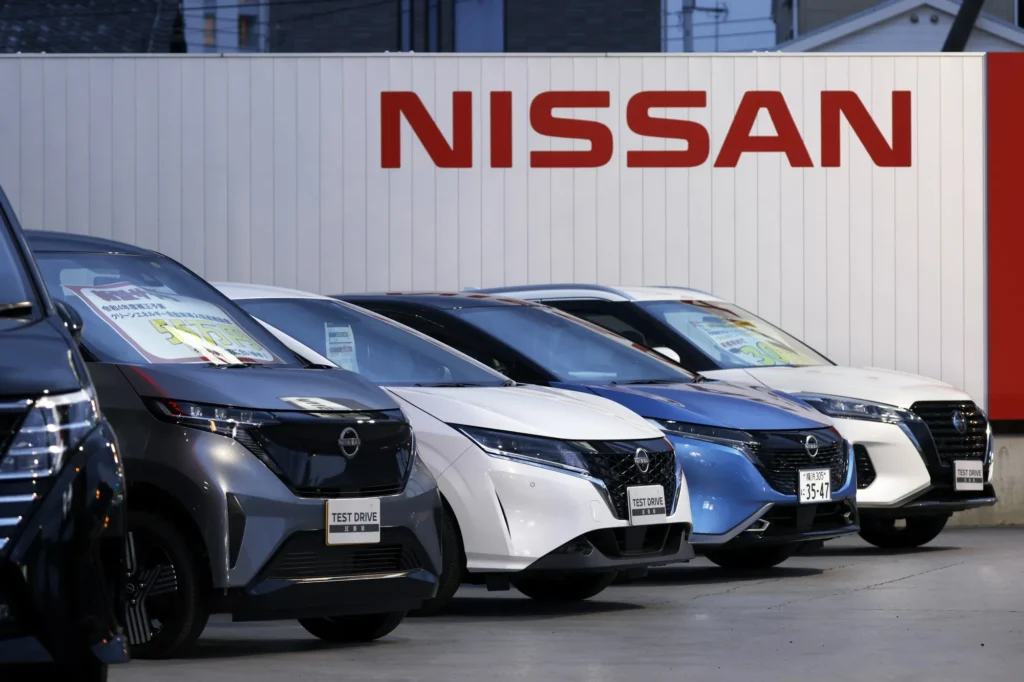- Nissan is closing 7 of 17 plants by 2027, including Oppama and two in Mexico.
- The goal is lower costs, higher efficiency, and a focus on EVs.
- Workers at affected plants will stay until FY2027, with reassignment or layoffs likely.
Nissan is making tough decisions to secure its financial future. As part of its Re:Nissan restructuring plan, the automaker is closing multiple production plants worldwide, including its flagship Oppama facility in Japan and two factories in Mexico. These moves aim to reduce costs, streamline operations, and refocus on profitability by 2027.

The Oppama plant, operational since 1961, was Nissan’s first major production hub, manufacturing iconic models like the Leaf EV, Bluebird, and Note. Meanwhile, the Civac and COMPAS plants in Mexico—one of which was Nissan’s first overseas factory—are also set to shut down.
This article explores Nissan’s plant closures, the reasons behind them, and what they mean for the company’s future.
Why Is Nissan Closing Production Plants?
Nissan’s financial struggles have forced drastic measures. The company reported a ¥670.9 billion ($7.1 billion AUD) loss in FY2025 , prompting CEO Ivan Espinosa to implement the Re:Nissan turnaround strategy. Key goals include:
- Reducing global plants from 17 to 10 by FY2027
- Cutting production capacity from 3.5 million to 2.5 million vehicles (excluding China)
- Improving plant utilization to 100% to lower manufacturing costs
These closures align with broader industry trends where automakers consolidate factories to fund EV development and adapt to slower sales growth.
The End of an Era: Nissan’s Oppama Plant Shutdown
The Oppama plant in Kanagawa, Japan, holds historic significance:
- Opened in 1961, it was Nissan’s first full-scale passenger car factory
- Produced 17.8 million vehicles, including the Leaf, Bluebird, and Cube
- Currently manufactures the Nissan Note and Note Aura
Why Oppama Is Closing
- Aging infrastructure – The plant is outdated and costly to modernize
- Underutilization – Running at 60% capacity, far below its peak
- Production shift to Kyushu – Moving operations to Fukuoka will cut costs by 15%
Impact on Workers:
- 2,400 employees will remain until FY2027
- Some may transfer to Kyushu, while others face layoffs
Two Mexico Plants on the Chopping Block
Nissan’s Civac and COMPAS plants in Mexico are also closing by early 2027.
Civac Plant (Morelos, Mexico)
- Nissan’s first overseas factory (opened 1966)
- Produced 6 million vehicles, including the Frontier, Versa, and Sentra
- Now operating at less than 30% capacity
- Potential buyers: Chinese automakers BYD and SAIC are reportedly interested
COMPAS Plant (Aguascalientes, Mexico)
- A joint venture with Mercedes-Benz since 2017
- Built the Infiniti QX50/QX55 and Mercedes GLB
- Production ending early due to U.S. tariffs on Mexican imports
The Re:Nissan Strategy: More Closures Coming?
Nissan’s restructuring doesn’t stop with Oppama and Mexico. The company has confirmed:
- A Thailand plant will consolidate into another facility
- South Africa and Argentina factories may also close
- No cuts in the U.S. or UK (Sunderland plant safe)
The goal? Reduce fixed costs by ¥500 billion ($5.2 billion AUD) by FY2027 .
What’s Next for Nissan?
Despite the cuts, Nissan is investing in:
- EV Expansion – New Leaf models and delayed U.S. electric SUVs (now launching in 2028).
- Simplified Platforms – Cutting vehicle platforms from 13 to 7 to reduce complexity.
- Foxconn Partnership Talks – Potential sale of Oppama plant for EV production.
Conclusion: A Necessary but Painful Transition
Nissan’s plant closures are a strategic response to financial instability, shifting consumer demand, and the high costs of legacy factories. While job losses and historic facility shutdowns are difficult, they may be essential for Nissan’s survival.


